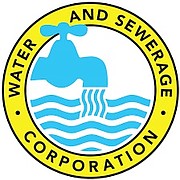By NEIL HARTNELL
Tribune Business Editor
nhartnell@tribunemedia.net
More than two-thirds of the Water & Sewerage Corporation’s $12.7m debt to its main BISX-listed supplier was “delinquent” at mid-year despite this sum being cut by $5m since 2018 year-end.
Consolidated Water, the New Providence reverse osmosis plant operator, revealed in its 2019 second quarter and half-year results that the Water & Sewerage Corporation’s persistent late payments continue to “adversely impact” the liquidity of its Bahamian subsidiary.
The build-up of debt, known as “accounts receivables” owed by the government-owned water distributor, has been a persistent problem for Consolidated Water which has forced it to describe it as a “risk factor” in filings with the US Securities & Exchange Commission (SEC).
While it has never been forced to take a provision, or hit, for these sums in its financial statements, the BISX-listed operator of the Blue Hills and Windsor plants has again warned that such extensive debts could mean its Bahamian subsidiary will need shareholder support if it finds itself in a liquidity crunch.
“Consolidated Water Bahamas’ accounts receivable balances due from the Water and Sewerage Corporation amounted to $12.7m as of June 30, 2019, and $17.6m as of December 31, 2018,” Consolidated Water’s latest 10-Q filing with the SEC revealed.
“Approximately 68 percent of the June 30, 2019, accounts receivable balance was delinquent as of that date. The delay in collecting these accounts receivable has adversely impacted the liquidity of this subsidiary.”
The filings did not define what “delinquent” means, but this likely refers to payments which are 90 days past due. The details given suggest that more than $8m of the $12.7m balance falls into this category.
Adrian Gibson, the Water & Sewerage Corporation’s executive chairman, did not return Tribune Business’s calls and messages seeking comment yesterday. The $12.7m sum owed at mid-year 2019 was some $1.1m higher than the $11.6m it had been cut to at end-April 2019.
Still, David Sasnett, Consolidated Water’s chief financial officer, said the parent company had been able to cut its total accounts receivables by more than $4m to $20.19m during the 2019 first half due to payments received from the Water & Sewerage Corporation. The latter, though, still accounts for more than 60 percent of its outstanding receivables.
“Historically, Consolidated Water Bahamas has experienced delays in collecting its accounts receivable from the Water and Sewerage Corporation,” the company added. “When these delays occur, we hold discussions and meetings with representatives of the Water and Sewerage Corporation and The Bahamas government and, as a result, payment schedules are developed for Water and Sewerage Corporation’s delinquent accounts receivable.
“All previous delinquent accounts receivable from the Water and Sewerage Corporation were eventually paid in full. Based upon this payment history, Consolidated Water Bahamas has never been required to provide an allowance for doubtful accounts for any of its accounts receivable despite the periodic accumulation of significant delinquent balances. As of June 30, 2019, we have not provided an allowance for Consolidated Water Bahamas’ accounts receivable from the Water and Sewerage Corporation.”
Yet Consolidated Water then warned: “If Consolidated Water Bahamas continues to be unable to collect a significant portion of its delinquent accounts receivable, one or more of the following events may occur.
“Consolidated Water Bahamas may not have sufficient liquidity to meet its obligations without new funding from its shareholders. We may be required to cease the recognition of revenues on Consolidated Water Bahamas’ water supply agreements with the Water and Sewerage Corporation, and we may be required to provide an allowance for Consolidated Water Bahamas’ accounts receivable. Any of these events could have a material adverse impact on our results of operations, financial position and cash flows.”
The reason for the Water and Sewerage Corporation’s inability to make timely, in-full payments to its main water supplier is set out in a recent Inter-American Development Bank (IDB) report that confirms the state-owned utility is selling water massively below cost to its customers - resulting in the Public Treasury/taxpayers having to subsidise it.
“The country’s national agency, Water and Sewerage Corporation (WSC), supplies less than 50 percent of overall potable water demand in The Bahamas. Currently, only 14 percent of the population has access to improved sewerage and sanitation facilities,” the IDB report said.
“No tariff adjustments have been granted for several years, and current tariffs presently represent about 60 percent of the cost of service in New Providence, and only 30 percent in the Family Islands (where the cost of service provision is higher and the tariff lower than in New Providence).”
As a result, the IDB warns that the benefits from reducing water leaks and losses from the Water & Sewerage Corporation’s system by 60 percent could be lost if there is no tariff rebalancing.





Comments
Well_mudda_take_sic 6 years, 6 months ago
We ain't get no reliable source of electricity and soon we get no reliable source of water. Dis da dear price we pay for dimwitted PM Minnis securing he legacy as leader of da most corrupt and incompetent gubbermint our country ever had.
Sign in to comment
OpenID